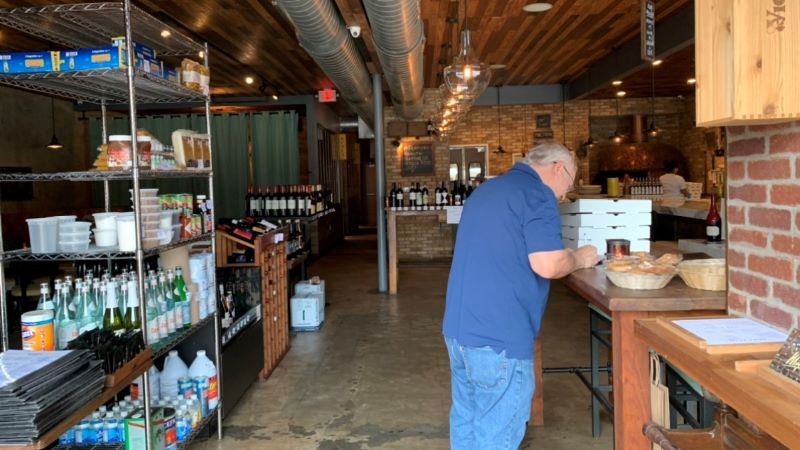Since Gov. Abbott's executive order on March 19 that limited Texas restaurants to carry-out and delivery service only, layoffs and a drastic loss in revenue have crippled many establishments and shuttered more. Those restaurants that remain open under the current restrictions are left to fight with skeleton staff, consisting mostly of salaried employees, and have scrambled to change their models.
Every restaurant still in operation has a number. A minimum they need to make every day in order for it to remain financially afloat— $2,000 a day on to-go food alone is hard to do. The sale of alcohol is imperative, as is whatever it takes— just last week several Houston restaurants began selling items like toilet paper, cleaning supplies, and flour to help their bottom line, as did restaurants in Los Angeles a few weeks before.
Cuchara, Good Dog Houston, Local Foods, and Bernie’s Burger Bus, to name a few, had begun late last week to offer more in the way of items like fresh eggs and paper towels— which also provided a less congested setting for shopping than a trip to the grocery store. According to the press release, this effort will also provide relief to overwhelmed grocery stores as well as keep the supply chain moving, which was effectively backed up by the halt of dining room service.
The entire supply chain from farmer, to distributor, to restaurant have felt the effects in a devastating way.
The press release named restaurant supply chain distributors like Sysco, Ben E. Keith, and Jake's Finer Foods among others as some who will benefit as well as help to supply restaurants. Other Houston-specific distributors that could benefit and have been affected are: DR Delicacy, Euromid, Selected Fine Foods, not to mention Farm to Table, Brother's Produce, and Black Hill Meats Texas Craft.
So as metal shelving replaced host stands and dining room tables now serve to hold toilet paper and dried linguine by the pound—because the existing empty square footage, devoid of dine-in customers wasn’t adding to the bottom line anyway—ever-resilient restaurateurs rushed to adapt. Retail items were quickly priced and entered into the restaurant’s point of sale; remaining employees were quickly trained on the new protocol.
Chief sanitarian of the Houston Health Department Christopher Sparks stated last week that for a retail operation to sell products repackaged or in their original state they needed to hold a manufacturer license with the Texas Department of State Health Services.
Now, restaurants, or “licensed retail foodservice establishments” may donate or sell food directly to consumers provided such foods are in its original condition, packaging, or presented as received by the retail foodservice license holder."
Guidelines can be found on these websites: Texas Department of State Health Services and the Texas Restaurant Association.
Regarding the sale of alcohol, on March 18, Governor Abbott issued a waiver that allowed the delivery and sale of beer, wine, and mixed drinks with purchase of food, which applies to all restaurants holding a mixed beverage license. Confusion ensued, as it was discovered that the Texas Alcoholic Beverage Commission did not allow for the sale of mixed beverages, or “pre-mixed” cocktails.
Instead, as stated by the Texas Restaurant Association, as of now, here are the new rules:
“Texas restaurants with a Mixed Beverage (MB) permit can now deliver alcoholic beverages with the following conditions:
• You must have a valid Mixed Beverage (MB) permit.
• Note: a Food and Beverage (FB) certificate is not required.
• The alcohol must be ordered along with food prepared at the restaurant.
• The alcoholic beverages must be in the original, manufacturer-sealed container.
• All distilled spirits served in a manufacturer-sealed container that is 375 milliliters or less.
You cannot sell for curbside, to-go, nor deliver the following;
• Pre-mixed cocktails
• Growlers or crowlers”
The Texas Restaurant Association, has started a platform for people to get in touch with representatives as well ask the governor and Texas Alcoholic Beverage Commission to expand the waiver so that those with a mixed beverage license can mix and seal alcoholic beverages and sell them under the current restrictions. The effort can also be found under the social media push of #Freethemargs.


